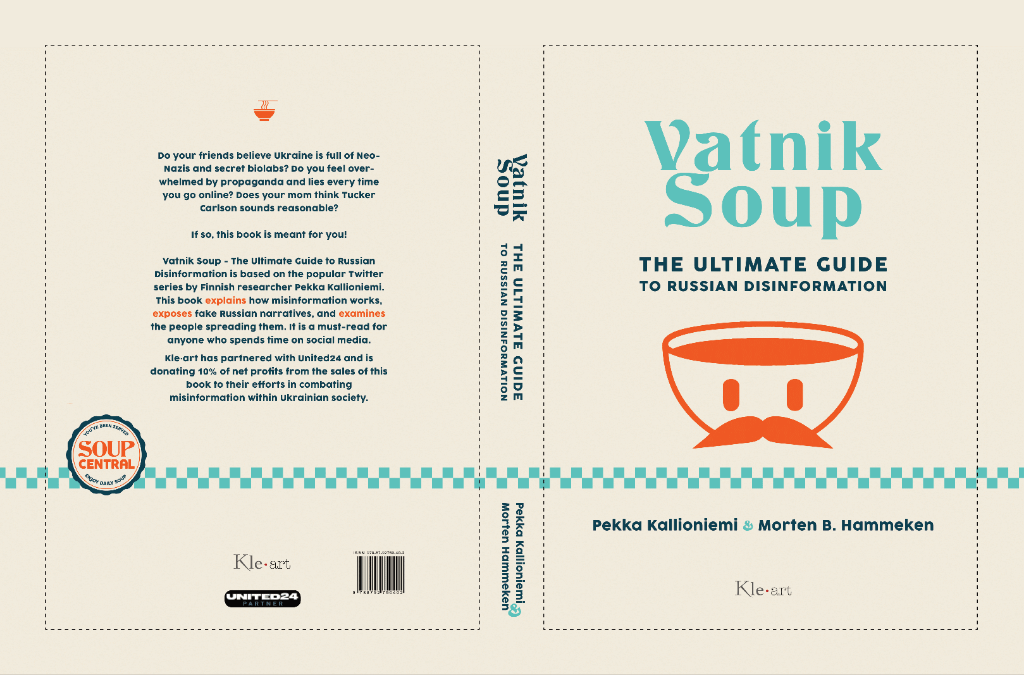The Book
Vatnik Soup – The Ultimate Guide to Russian Disinformation

Pekka Kallioniemi and Morten Hammeken
Vatnik Soup – The Ultimate Guide to Russian Disinformation
Available, order now:
- From the publisher (Denmark)
- From the publisher (International)
- From Amazon.com
- From Amazon.ca
- From Amazon.co.uk
Translations:
